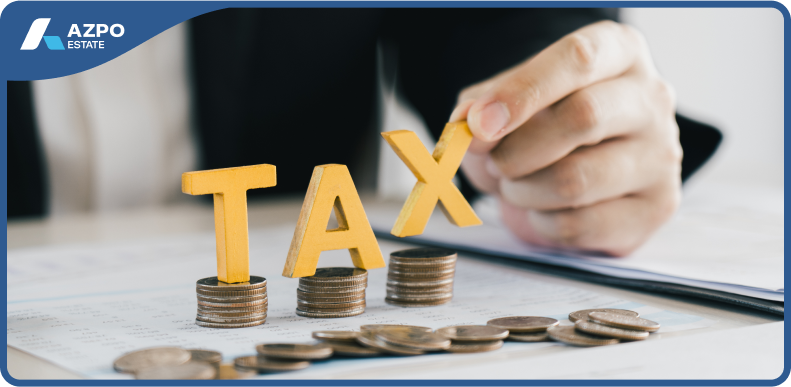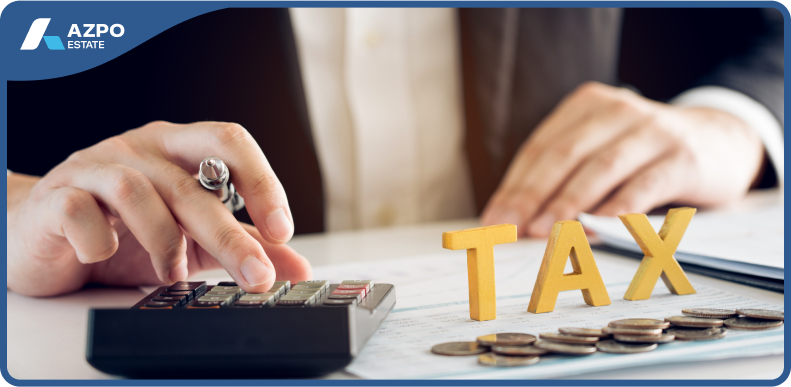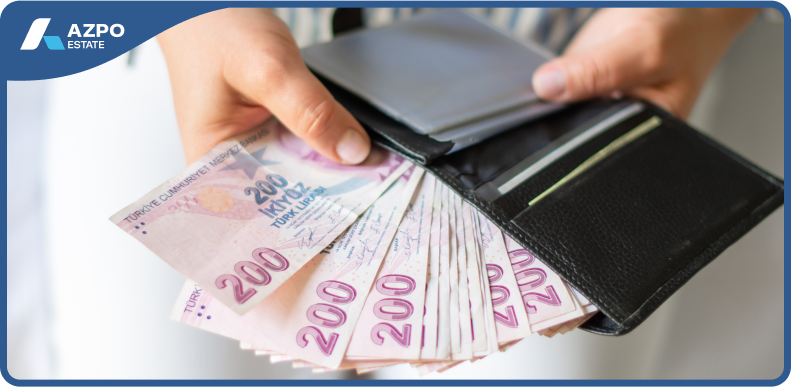
Hey there, future Turkey explorer! AZPO Estate is here to give you the lowdown on a topic that might pop up as you plan your trip or investment: tourist tax. As you get ready to soak in the rich history, stunning landscapes, and vibrant culture of Turkey in 2025, it’s good to know about any additional costs that might come your way. Let’s dive into the details so you can budget smartly and enjoy your Turkish adventure without any surprises.
Yes, you do have to pay tourist tax in Turkey. It’s officially known as the Accommodation Tax, is a levy imposed on guests staying at various accommodation establishments. This tax supports the development of the tourism sector and helps maintain public services related to tourism. Think of it as a small contribution to keeping Turkey a top-notch destination for everyone. AZPO Estate always wants you to be prepared, so knowing about this tax is key.

Whether you’re an international tourist or a Turkish citizen enjoying a local getaway, if you’re staying at a hotel, hostel, resort, or guesthouse, you’ll likely be subject to this tax. There are a few exceptions, though:
● Educational institutions: If you’re in student accommodation, you’re off the hook.
● Diplomatic missions: Diplomats and consulates, along with their staff who have diplomatic rights in Turkey, are exempt.
● Military facilities: If you’re staying in a facility used by military personnel, you won’t need to worry about this tax.
The tourism tax is usually added to your accommodation bill. The hotel or establishment collects it directly from you. Some places might include it in the initial booking price, while others list it as a separate charge at checkout, so it’s always wise to double-check with your accommodation provider to avoid any confusion.

Yes, there definitely is a tourist tax in Turkey. Knowing this helps ensure there are no unexpected costs during your stay.
The tourism tax is calculated as a percentage of the total accommodation cost, but doesn’t include Value Added Tax (VAT). While specific rates can vary, keep in mind that this tax is an additional expense on top of your reservation price.
If you’re staying at a tourism facility that the Ministry of Culture and Tourism deems appropriate for promotion—such as those focused on winter, thermal, health, rural, or qualified sports tourism—the rates may be reduced by 50%.
Turkey is a popular tourist destination, attracting millions each year with its history, landscapes, and culture. The tourism tax helps offset the costs of maintaining infrastructure and services for this booming sector.
The revenue from the tourism tax is used to develop Turkey’s tourism infrastructure. This includes improving facilities, maintaining historical sites, and enhancing services that tourists use.
The Turkish government is expected to maintain transparency in how these funds are used. This helps keep trust and support from both the tourism industry and visitors.

When you’re looking at property taxes in Turkey, there are several different types to keep in mind. Here’s a breakdown to help you navigate the system:
Read More : Can Foreigners Buy Property in Turkey?
When you purchase a property in Turkey, you’ll need to pay a title deed fee, known as “Tapu” in Turkish. This fee is 4% of the property’s price.
● Payment Responsibility: Typically, this fee is divided between the buyer and the seller. However, the agreement can vary, so make sure to clarify who pays what.
VAT applies to commercial, industrial, and professional transactions in Turkey. However, there are exemptions:
● Exemptions:
○ If the property’s current owner isn’t involved in commercial activities.
○ If the current owner isn’t in the real estate business and has owned the property for over two years.
● VAT Rates:
○ The standard VAT rate is 18%.
○ For residential properties with a net area under 150 m2, VAT ranges from 1% to 8%.
○ For properties exceeding 150 m2, the VAT is 18%.
● Foreign Buyer Exemption: As of 2017, foreign buyers purchasing real estate from developers are exempt from VAT, making Turkey an attractive investment location. If you are a non-resident of Turkey who has lived in the country for less than 183 days a year, you may be able to get a refund of the VAT when buying a new property from a developer. You can apply for VAT exemption as a foreign investor.
Stamp duty is another tax to consider, although details on this within the provided context are limited.

You’ll also encounter an annual property tax. The amount varies between 0.1% and 0.6% depending on the property type and the size of the city where it’s located.
If you earn income from your property in Turkey, such as through rentals, that income is subject to income tax.
● Tax on income derived within Turkey can be taxed at up to 35%.
In the event you inherit or receive property as a gift, this tax will apply.
● Tax Incentives: Turkey offers tax incentives for international investors, particularly on income derived from abroad. If you stay in the country for no more than six months a year, you are exempt from paying taxes as you will not be considered a tax resident.
● Wealth Tax: Turkey does not have a wealth tax.
● Corporate Taxes: Businesses based in Turkey pay a 20% income tax on all income, both within the country and abroad.
● Real Estate Ownership Tax: Investors are taxed annually on property they own.
Read More : Attractions in Antalya Turkey 2025
There are two main ways to pay your property tax in Turkey:
1. In-Person: Visit the tax office and pay the lump sum.
2. Online: Pay through the municipality’s official website.

Paying your annual property tax in Turkey is straightforward. Here’s how you can do it:
1. At the Tax Office:
○ Visit your local tax office.
○ Make your payment in person.
2. Online via the Municipality Website:
○ Go to the official website of your local municipality.
○ Follow the instructions to pay online.
● Seek Expert Advice: If you’re unsure about your tax obligations, consult a tax professional or a qualified real estate agent.
● Set Reminders: Set reminders for tax payment deadlines to avoid penalties.
● Property Purchase Tax: Property buyers pay property purchase tax and a registration fee.
● VAT: The property price includes VAT, ranging from 1% to 18%, depending on the area. Non-residents who stay in Turkey for less than 183 days a year can get a VAT refund when buying a new property from a developer.
● Associated Costs: Expect associated costs to range from 5% to 8% of the purchase agreement value.

● Documents Needed:
○ Valuation report
○ Earthquake insurance
○ Residence permit (if applicable)
○ Tax number
● What to Expect:
○ Transfer the money.
○ Sign and close the deal at the deed office (Tapu office).
● Real Estate Agents:
○ Pick two or three good agencies.
○ Check their websites and client reviews.
● Lawyers:
○ Hire a lawyer, especially if you’re a foreign buyer.
○ A lawyer can help with paperwork, navigate the language barrier, and more.
1. Not Having a Clear Objective:
○ Determine if the property will be a vacation spot, a permanent home, or an investment.
2. Not Researching the Market:
○ Research the market by browsing popular Turkish real estate websites.
3. Refusing to Work With an Agency:
○ Work with a reliable real estate agency to avoid scams.
4. Making Emotional Decisions:
○ Avoid making rash decisions.

● Affordable Properties: Properties in Turkey can be relatively cheap due to a lower cost of living.
● Citizenship by Investment: You can apply for Turkish citizenship by investment.
As you plan your property purchase or trip in Turkey in 2025, remember these tips to ensure a smooth and informed experience. Whether it’s understanding property taxes or navigating the buying process, being prepared will help you make the most of your investment and enjoy all that Turkey has to offer.
Do you pay tourist tax in Turkey? Yes, but with the right knowledge, you can manage it efficiently and enjoy your Turkish experience to the fullest!
Ready to explore your real estate options in Turkey? Check out AZPO Estate’s listings today and let us help you find your dream property!
© 2025. All rights reserved by Azpo.